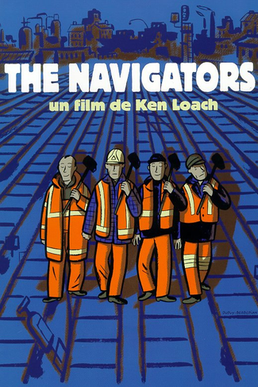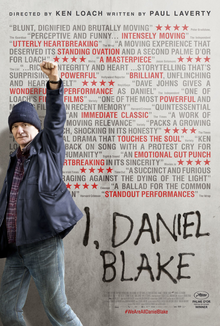Related Research Articles
British Railways (BR), which from 1965 traded as British Rail, was a state-owned company that operated most of the overground rail transport in Great Britain from 1948 to 1997. It was formed from the nationalisation of the Big Four British railway companies, and was privatised in stages between 1994 and 1997. Originally a trading brand of the Railway Executive of the British Transport Commission, it became an independent statutory corporation in January 1963, when it was formally renamed the British Railways Board.

Navvy, a clipping of navigator (UK) or navigational engineer (US), is particularly applied to describe the manual labourers working on major civil engineering projects and occasionally to refer to mechanical shovels and earth moving machinery. The term was coined in the late 18th century in Great Britain when numerous canals were being built, which were also sometimes known as "navigations".
The privatisation of British Rail was the process by which ownership and operation of the railways of Great Britain passed from government control into private hands. Begun in 1994, the process was largely completed by 1997. The deregulation of the industry was in part motivated by the enactment of EU Directive 91/440 in 1991, which aimed to create a more efficient railway network by creating greater competition.

The Navigators is a 2001 British film directed by Ken Loach with screenplay by Rob Dawber.

Sir Robert Alastair Newton Morton was Chief Executive of Eurotunnel and Chairman of the Strategic Rail Authority, industrialist and the last chairman of the British Railways Board.

Wath upon Dearne is a town south of the River Dearne in the Metropolitan Borough of Rotherham, South Yorkshire, England, 5 miles (8 km) north of Rotherham and almost midway between Barnsley and Doncaster. It had a population of 11,816 at the 2011 census. It is twinned with Saint-Jean-de-Bournay in France.
Melvin Barry Hines, FRSL was an English author, playwright and screenwriter. His novels and screenplays explore the political and economic struggles of working-class Northern England, particularly in his native West Riding/South Yorkshire.
Tony Garnett was a British film and television producer, and actor. Best known for his thirteen-year association with director Ken Loach, his work as a producer continued into the 21st century.

Paul Laverty is a screenwriter and lawyer best known for his screenplays for films directed by Ken Loach.
The Permanent Way is a play by David Hare first performed in 2003.
James Knapp was a British trades unionist. He was successively General Secretary of the National Union of Railwaymen (NUR) from 1983, and then of the merged National Union of Rail, Maritime and Transport Workers (RMT) from 1990 to his death in 2001. He served on the executive board of the International Transport Workers' Federation from 1983 to 2001, the General Council of the Trades Union Congress from 1983 to 2001, and was President of the Trades Union Congress in 1994.
Sir Eustace James Missenden was a British railwayman, successively the last General Manager of the Southern Railway and the first Chairman of the Railway Executive.
James Allen was an English socialist playwright, best known for his collaborations with Ken Loach.

The Privatisation process in Pakistan is a continuous policy measure program in the economic period of Pakistan. It was first conceived and implemented by the then-people-elected Prime Minister Nawaz Sharif and the Pakistan Muslim League, in an attempt to enable the nationalised industries towards market economy, immediately after the economic collapse of the Soviet Union in 1989–90. The programme was envisaged and visioned to improve the GDP growth of the national economy of Pakistan, and reversal of the nationalisation programme in 1970s— an inverse of the privatisation programme.
The Alliance for Workers' Liberty (AWL), also known as Workers' Liberty, is a Trotskyist group in Britain and Australia, which has been identified with the theorist Sean Matgamna throughout its history. It publishes the newspaper Solidarity.

Kenneth Charles Loach is a British film director and screenwriter. His socially critical directing style and socialism are evident in his film treatment of social issues such as poverty, homelessness, and labour rights.

The impact of the privatisation of British Rail has been the subject of much debate, with the stated benefits including improved customer service, and more investment; and stated drawbacks including higher fares, lower punctuality and increased rail subsidies. The privatisation of British Rail began in the 1990s.

I, Daniel Blake is a 2016 British drama film written by Paul Laverty and directed by Ken Loach. The film stars Dave Johns as Daniel Blake, a middle-aged man who is denied Employment and Support Allowance despite being declared unfit to work by his doctor. Hayley Squires co-stars as Katie, a struggling single mother whom Daniel befriends.

"The Rank and File" is the 21st episode of first season of the British BBC anthology TV series Play for Today. The episode was a television play that was originally broadcast on 20 May 1971. "The Rank and File" was written by Jim Allen, directed by Ken Loach and produced by Graeme McDonald. It is included in the Ken Loach at the BBC boxset released in 2011, although the recording is of unusually poor quality for a DVD release.

Sorry We Missed You is a 2019 drama film written by Paul Laverty and directed by Ken Loach.